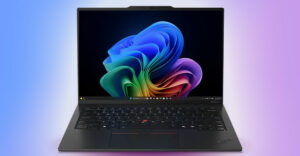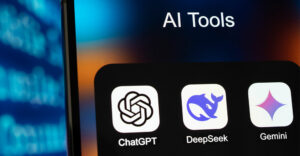
It looks like recording labels are willing to give music away for free if it means not having to deal with iTunes — the No. 1 online music vendor and the No. 2 nemesis of music execs, due to its rigid pricing.
While iTunes is clean and easy to use, it’s also pretty sterile. If you know what you want, you’ll probably find it there, and you can buy it very easily. You can even get a sort of automated personal shopper in the form of the new Genius feature. But unless you have a friend sitting at your computer with you, shopping at iTunes is not a very social experience.
Those who desire more of a human element in their pursuit of online tunes can go to music social networking sites like Last.fm.
However, music social networks can be pretty small and fragmented. Most users will probably find that only a few, if any, people they actually know are members of the same site. So when you want to find new stuff, you’re still taking recommendations from either a) the few friends you have on that particular site, or b) a cold, heartless database with no actual taste of its own.
Massive Music
So now all four major record labels, as well as a fair number of independents, are hooking up with one of the biggest and most general-interest social networks out there, MySpace.
MySpace Music will provide users with a lot of free, full-length listening in exchange for some ads and the chance they’ll click on a conveniently placed “Buy” button. Users can create their own playlists of full-length songs, which their friends can check out and stream through their computers all they want.
Ads play, offers are made to download songs for keeps through Amazon (no DRM!), and the music industry maybe learns to live a little more comfortably with the realities of the Internet.
By lending this huge music collection to users of a more general, heavily populated social network, you can presumably discover music recommended by a bunch of actual humans that you know in real life. It can’t hurt that MySpace is already the go-to site for promoting small-name music acts (any garage band worth a broken drumstick has a MySpace page).
Strangely, MySpace CEO Chris DeWolfe insists MySpace Music isn’t an iTunes competitor. That’s the PR message they’re giving the press, anyway. But MySpace Music is not exactly “complementing” Apple. By running its sales through Amazon, it’s complementing what could be considered iTunes’ biggest threat.
Free Downloads? Not Intentionally
This arrangement stops well short of actually giving away any downloads for free (although, who knows, maybe they’ll do it someday just to tie iTunes in knots). In order to get any music on a portable MP3 player, you’ll have to pay up — or perform a work-around.
The overall sound quality of the songs MySpace makes available isn’t exactly lossless, but it’s certainly better than what you get with the music videos on YouTube. So the service streams full-length songs at decent quality for free, presenting a fairly easy end-run around the system’s goal of actually selling music. Anything that’s played over a computer’s speakers can be captured and encoded to MP3s using free software.
Doing that still takes a little more work than the click-to-buy option, as does searching out torrents and dumping them into a BitTorrent client. The RIAA would certainly call it stealing — and it’s about as classy as tape-recording songs from the radio. Still, the younger end of this service’s demographic — teenagers — isn’t exactly known for having tons of disposable income. If they can save a buck by getting something for free, a lot of them will. And even though it’s arguably just as piratical as file-sharing, recording streamed tunes looks safer. You’re getting it through a clean, licensed channel rather than shady data packets your ISP might be tempted to snoop into.
Money Concerns
Workarounds and cheats are practically inevitable in digital music distribution. The creators of MySpace Music are probably well aware of its weaknesses, but they’re ready to go for it anyway.
Any deal between an online entity and a music label that doesn’t involve a lawsuit is interesting, sometimes only because it’s laughably nonsensical. This one, though, is an especially big event due both to its scope (all Big 4 labels, the biggest name in e-tail and an incredibly large social network) and the extent to which the music is given away for free. Remember, Universal Music very recently had its hands around MySpace’s throat for letting users listen to music without paying up.
Of course, giving music away for free isn’t such a radical idea if money can still be made. FM radio did alright for itself for decades acting as an advertising channel for whatever new music was hitting stores. MySpace Music takes the essential elements of radio a step further. Now your friends are the DJs, you can buy with a click instead of a trip to the record store, and the ads don’t have to wait until a commercial break to have their way with you.
However, the exact layout of who pays who how much isn’t entirely clear, and some are wondering whether certain special arrangements between the labels and MySpace are even legal. Will MySpace Music lead to the payola racket of the 21st century?
Also, some independent labels are frustrated that they aren’t getting their fair share of the revenue. That can be especially hurtful to a venture like this, because the whole point of learning about new music from friends is to let them show you something obscure.
Lacking the marketing and promotional budgets of the Big 4, indie music is spread through the personal recommendations that MySpace Music is made for, and taking the indie labels for granted this early in the game can’t be a good sign.






















































I was checking MySpace, including Project Playlist, last couple days and didn’t see any lists of songs provided by labels or AM azon. Is there something I don’t know?